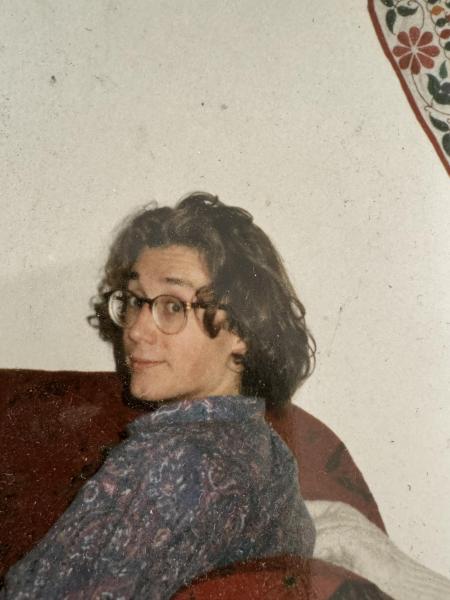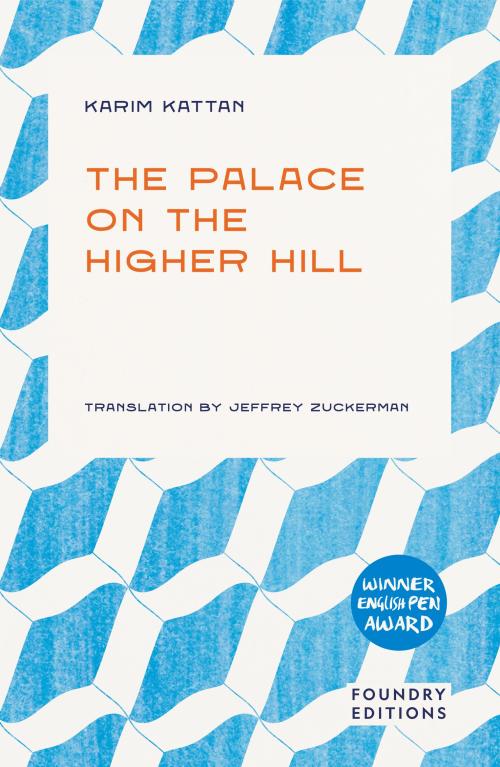
What do you remember studying during your course?
I read Spanish and Italian. I really remember the vast majority of it. There are some corners of 19th-century Romanticism in both languages that have not stuck, I must admit, and I’m not sure I need bother much about Góngora again (Quevedo all the way), but the rest is still quite vivid.
What did you most enjoy?
I loved the Boccaccio and Ariosto paper. Both Orlando Furioso and Decameron are such romps, but such doorstops that it was unlikely I’d ever get round to reading them again. I became marginally obsessed by Eugenio Montale in the Fourth Year, which is odd, as I’m not a natural poetry fan.
My Spanish favourites are all more obvious – the Big C(ervantes)and the Big JLB(orges) of course, but also the fact that way back then in the mists of time, the fact I wanted to read and write about slightly less well-known Latin Americans like Manuel Puig and Carlos Fuentes was great. The former, in particular, remains a very firm favourite.
Where was your favourite place to hang out?
Oh heavens! This is going back.
The KA [King’s Arms] or some ridiculous late 80s party that always seemed to be in an Undercroft the night before.
Queen’s Lane Coffee House and the lawn in front of Magdalen’s New Buildings the morning after.
The corner desk looking over St Giles’ on the balcony in the main reading room of the Taylorian for sensible. Is there anywhere more beautiful to read? I defended my spot there quite vehemently.
The newly opened Freud and Raoul’s in Jericho, or watching something with subtitles at the Phoenix in the fourth year. I think we all thought we were much more grown up when we came back after our travels. We very likely weren’t.
What did you do when you left Oxford?
I had a relatively chequered time. Immediately afterwards, I went to the Courtauld Institute and did an MA in Art History. I then pottered around in the art world fairly unconvincingly until I got a proper job at the BBC working in their onscreen branding department. A far cry from novels in the original. It led to a 25-year career in branding and design, which culminated in me having a small consultancy for the past 15 of them.
Tell us about your new venture, Foundry editions (foundryeditions.co.uk).

We are a small, independent publisher that specialises in translated fiction from the Mediterranean region.
If I’m honest, Foundry started as a post-Covid mid-life crisis. I decided to go back to UEA to do their MA in Literary Translation part-time because the reading novels from abroad bug that I really caught at Oxford never left and I wanted to see if I could do something about making more people in the English-speaking world engage with fantastic stories and writing from beyond our very monolithic language. Extreme idealism in one so old perhaps, but it’s a mid-life crisis!
Whilst I was there, and having talked to a lot of people in the publishing side of literary translation, I realised that I would have more agency to make that happen if I published rather than translated. Two great publishers of the literary translation world encouraged me to go ahead, indeed they actively asked me to consider starting a house seriously, as the interest in translated fiction and its acceptance amongst readers here is growing. I set out, writing one email a day to rights holders, publicity people here, bookshops, etc., fully expecting no replies, but instead everyone said ‘yes’ at every step of the way and so here we are, with a little press and eight books out.
Foundry has a clear focus on bringing contemporary stories from the Mediterranean to English. For me the specialisation fell into place quite easily. I speak and read in Italian, Spanish and French, we have a centuries old cultural fascination with the Med and millions of us go on holiday there every year. We want to take the best of what’s being written there and make it available to readers here.
How do you select books for translation?
An awful lot of reading, which is lovely! In the languages I speak, I keep abreast of what’s coming out anyway, so I’m always sniffing around for things that sound interesting. We also have built up very close relationships with publishers and agents across the region, so there’s a constant stream of material for me to look at. For languages I don’t speak, there’s usually an intermediary in the shape of a translator or a national cultural organisation which proposes potential titles alongside English samples.
When I’m constructing our list, I always try to balance different genres, voices and outlooks, so that our readers can dive into a whole range of Mediterranean experiences. What unites them is their beautiful writing, their ability to give English-speaking readers a different or unexpected take and, hopefully, some joy from the reading experience.
Which languages does Foundry Editions translate from?
Any language or dialect from the Mediterranean basin. So far we have published books translated from Greek, Italian, Spanish, Arabic and French. We’re adding Catalan later this year and (very excitingly) Maltese in summer 2026. We are also in active conversations about books from Croatian and Hebrew.
Do you work directly with the authors and translators?
Absolutely. With translators, all the time. We commission the translator for every project and as I often edit the books too, I have a very close working relationship with them.
Wherever possible we work with authors too. Their participation in the publicity of the books over here is really important as it gives a face to what otherwise might be just another book. Their backstories, opinions, inspiration, etc. really help add dimension and depth to their works.
Tell us about the most recent book you have published.
Our most recent book is The Palace On The Higher Hill, by the Palestinian author, Karim Kattan (translated by Jeffrey Zuckerman). It’s an unsettling, ghostly, family story set in an abandoned mansion in Palestine. The narrator goes back to this sprawling family home and the ghosts reveal the story of his family and of the Palestinian people since 1948. It’s a story about exile, violence, class, identity, and the land. And it’s beautifully, beautifully written. I can’t recommend it enough.
What can we look forward to over the coming months?
We have two books out in June: Just A Little Dinner, by Cécile Tlili (translated by Katherine Gregor) is the story of a dinner party in Paris that goes horribly wrong. It’s a wonderful read, that focuses on a single event in that peculiarly French way, with four fantastically drawn characters who will not leave you indifferent. The Little I Knew by Chiara Valerio (translated by Ailsa Wood) is an Italian literary bestseller with shades of Virginia Woolf and Elena Ferrante. It’s set in a small Italian town and is the story of two women and too much left unsaid.
Our list for next year is shaping up well too. Among others, we have a Greek noir, about the alt-right blackmailing the establishment with deepfake videos, an agonising French novel about a woman trying to repatriate her father’s body from the Cameroon that won the Prix Goncourt du Premier Roman and a very visceral tale about a Galician peasant woman becoming possessed by the spirit of a Cuban monk. Lots of good stuff to come.